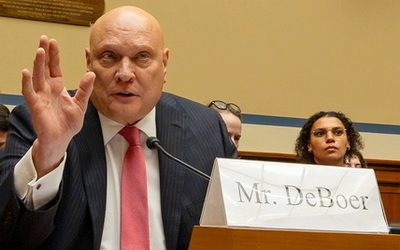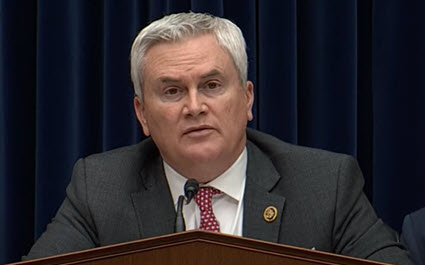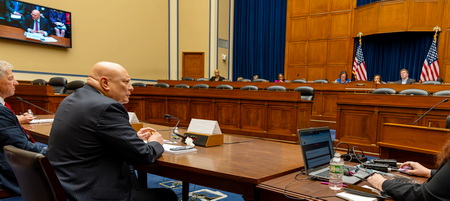
Real Estate Roundtable Chairman Emeritus (2015-2018) William C. Rudin (Co-Executive Chairman, Rudin) discussed commercial real estate conditions on CNBC’s Squawk Box this morning, emphasizing how public policies could help the industry meet significant challenges as it faces a wave of looming maturities in a high-interest rate environment.
Federal Action Needed
Roundtable Recommendations

The Roundtable’s all-member Annual Meeting on June 20-21 in Washington, DC will include speakers and policy advisor committee meetings focused on many of these topics.
# # #

This week, Sens. Mitt Romney (R-UT) and Joe Manchin (D-WV) introduced the Back to Work Act of 2024 (S. 4266), which would require federal employees to spend 60% of their work hours in the office, a slight increase from the 50% in-office policies at many agencies. The Roundtable supports various efforts by policymakers to enact workplace return policies for federal workers. (Romney-Manchin news release and The Register-Herald)
Senate Bills
House Efforts

The Roundtable View

The Roundtable will discuss the evolving remote work issue during its all-member June 20-21 Annual Meeting in Washington, DC.
# # #

The Real Estate Roundtable and more than 100 business organizations recently expressed strong support for bicameral legislation that would repeal the Corporate Transparency Act (CTA) and its onerous beneficial ownership burdens, which took effect on Jan. 1. The Roundtable has consistently opposed the CTA’s beneficial ownership rules. (Coalition letter, April 29)
CTA Overreach
Penalties

The Roundtable’s Real Estate Capital Advisory Committee (RECPAC) will continue to monitor developments related to beneficial ownership requirements and legal outcomes.
# # #